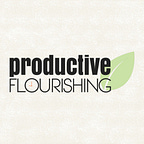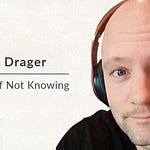Topics We Explored:
Dr. Brody joins Charlie on the show to talk about her book Overcoming Overwhelm: Dismantling Stress From the Inside Out.
They discussed ways overwhelm may be showing up in your life, and expansive ways to combat stress and that sense of overwhelm.
The episode closes with a consideration of the relationship between our values and overwhelm, compartmentalization, and our individualized pace of change.
Links and Resources Mentioned in This Episode:
About Dr. Samantha Brody:
Dr. Samantha Brody is a licensed Naturopathic Physician and acupuncturist and the owner and founder of Evergreen Natural Health Center in Portland, Oregon. In addition to her full time private medical practice Dr. Samantha works virtually with clients across the globe. She's a sought after speaker and has been a featured expert in publications and on sites such as the Wall Street Journal, Huffington Post, Shape, Livestrong, For Women First, Prevention Health Books and more.
Thanks for Listening!
Subscribe to Productive Flourishing on Apple Podcasts to get all the latest episodes delivered straight to your preferred mobile device. This is the perfect option for listening to the show in the car, on the subway, or while you’re working out. Plus, you won’t have to fuss with figuring out how you’re going to listen.
Episode Timestamps
[1:50] – “Overwhelm” is a word we use a lot, but Dr. Samantha’s definition is more comprehensive: it is the point at which what we’re experiencing is more than we can handle, and we have a response to it in one way or another. Our responses are individualized based on history, genetic disposition, and our worldview.
[4:20] – The sense or experience of overwhelm is the most important thing to get under control in order to help people feel better, whether emotionally or physically. By coming at it from the perspective of what’s most important to us, we have extra room to absorb stress and do the work we need to do.
[7:00] – Naturopathic medicine is all about looking at the whole organism and our lives in totality, and then identifying the root cause of our symptoms. If we try to solve our problems on the surface, they will likely pop up elsewhere in a different form.
[9:58] – There is a relationship between our values and overwhelm. The first step in the process of overcoming overwhelm is figuring out what is most important to us. When we’re not clear about this, we end up making choices that align with someone else’s values rather than our own. Our values, how we want to feel, and what we want to accomplish is our True North, or what we’re trying to move toward.
[13:15] – When we choose what to do and what not to do, it takes away some shame and discomfort, because we’re prioritizing right in the moment. When we misfire, we can figure out what didn’t work and why. We don’t have to shame or guilt, but continuing to work toward making choices for ourselves where we have control over the decisions can help to manage overwhelm.
[17:58] – One of the big sources of overwhelm for a lot of people is that they don’t give themselves the opportunity to not be superhuman. Sometimes our priorities have to shift from our normal behavior to something that allows us to breathe. Overwhelm can come not because of what’s actually happening, but the story we’re telling ourselves about what is happening to us, and how we react to it.
[21:35] – Sometimes not seeing a decision through can cause overwhelm. A lot of people get stuck after making a decision and taking action that solidifies that decision. A helpful exercise is to identify what you can change, what you can’t change, and what you’re going to choose not to change.
[24:45] – At some point, overwhelm becomes overload. We are each born with a different ability to handle stress (our bucket). Our buckets fill up with different things in some general categories: environmental stress, nutritional stress, insufficiencies, financial stress, cultural stress, and health stress. In each of those categories, there are different stresses that impact us individually.
[27:02] – Once our bucket is full, it overflows and we feel overwhelmed, and our weak spot is going to be exploited. We are able to decrease our overall load by identifying the things we have control over, and acting on the things that will have the most impact with the least amount of effort.
[29:15] – Everyone has a different way that they make change best and how they approach change. Some people like to tackle the small things first, and others like to solve the big issues first. You have to be honest with yourself about what works best for you.
[32:20] – We’re generally not very good at time scale shifts. This contributes to overwhelm because we often look at our lists of what needs to get done and collapse it to right now. We have to consider our list and relate it to a certain chunk of time that is attainable.
[35:15] – Part of the holistic approach is that sometimes, to go forward in one way, you have to go 90 degrees a different way to solve the problem.
[36:23] – One of the other main ideas in the book is that you can’t fail at self-care. Taking care of ourselves is a process, and no one way is right. If you’re unable to implement something, it either means it’s the wrong thing or maybe we need more support.
[39:02] – Sometimes we have to approach self-care as an experiment; we try something and see what happens. If what we tried doesn’t work, it’s a learning opportunity to figure out something different. This removes the pass/fail stigma.
[40:05] – If you’re already overloaded, adding something new is so much harder. We have to make the effort to identify what’s most important, and what we can remove from our bucket that’s not serving us. We have the space to really experiment and hopefully come up with a solution.
[41:45] – Dr. Samantha’s challenge is to take some time to really look at what your values are. Get clear about that one thing that is going to help you make choices that will get you toward what’s most important for you in your life.













